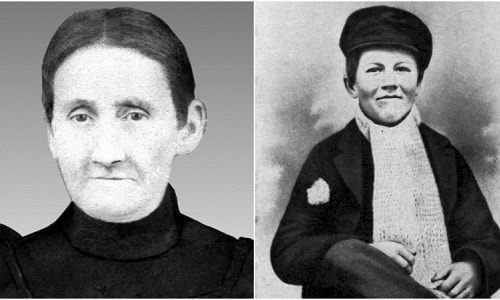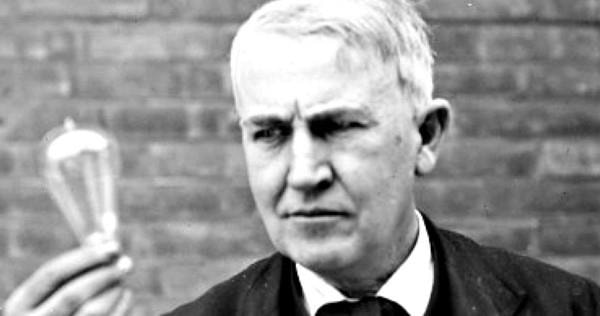Thomas Edison's mother's turning point to help her son become a genius
"My mother is my maker," said Thomas Edison about the woman who turned him from a dull child into the greatest inventor of all time.
There are many stories of uncertain authenticity surrounding the childhood of the inventor of the electric light bulb, but all are based on the efforts in studying and researching of Thomas Edison (February 11, 1847 - October 18, 1931) and the role of his great mother.
An anecdote is told from the moment Thomas Edison's elementary school teacher wrote a letter to his mother. After giving the letter to his mother, Edison asked her about the content, her eyes were filled with tears as she read each word to her son: "Your son is a genius. This school is too small and there are no good enough teachers to train him. Please let him teach himself".
Many years later, after his mother had passed away and Edison had become one of the greatest inventors of the century, he was looking through old household items. Suddenly, he found a folded piece of paper in the corner of a desk drawer. He opened it and saw written on it: "Your son is a fool. We will not let him go to school anymore."
Edison cried for hours, then wrote in his diary: "Thomas Alva Edison was a dull child, who thanks to his heroic mother became the genius of the century."
 |
| Edison was educated at home under the guidance of his mother after leaving school. |
Thomas Edison knew that his teachers considered him mentally ill. In the classrooms of the 1800s, Thomas Edison struggled with learning because he suffered from dyslexia. Little was known about the condition at the time. It wasn’t until the early 1900s, decades after Edison left school, that the first studies on dyslexia were conducted.
According to the Economic Education Foundation, in 1854, Reverend GB Engle branded seven-year-old Thomas Alva Edison a fool and mentally ill. Edison left Port Huron, Michigan, the first formal school the boy had ever attended.
His mother, Nancy Edison, took him back the next day to discuss it with the Reverend, but she became angry at his rigidity. She decided to educate her son at home, abandoning the school where Edison had only attended for three months. Although Edison apparently attended two other schools for short periods, the genius spent most of his childhood studying at home under the guidance of his mother.
In her biography, "Thomas Alva Edison: The Greatest American Inventor," Louise Betts goes into detail about why Edison had trouble with the Reverend's teaching style. For a child who was used to figuring things out on his own and playing outside all day, sitting still in a classroom was a pain.
Reverend G. Engle, Edison's teacher, and his wife taught the children to memorize by reading aloud. When a child forgot an answer, or did not memorize it well enough, the Reverend beat him with a whip. His wife also approved of this method of education, thinking that whipping would help form study habits in children. Her whipping was even more severe than her husband's.
Edison was confused by this way of teaching. The boy could not learn with fear. He could not sit still and memorize. He liked to look around and ask questions. But Reverend Engle was annoyed by Edison's questions. For this reason, he did not learn much in school during the first few months and always got bad grades.
Later, when sharing about his learning experiences, he said: "I remember that I never made any progress in school. I was always at the bottom of the class, felt that the teachers did not like me, and my father thought I was really stupid."
 |
| Thomas Edison |
However, according to the biography, when Edison told his mother about the teacher calling him stupid, the two went to the school to seek an apology. "My son is not going backwards, I believe," Mrs. Edison said. Despite her mother's efforts, the Reverend and his wife did not change their minds about their student. Finally, Mrs. Edison realized what she had to do. "All right, I will teach him at home myself," she declared.
Edison couldn't believe his ears. He looked at his mother, the woman who had believed in him, and promised himself that he would make her proud. At the end of his life, Edison said: "My mother is my creator. She gives me the motivation to live, she makes me always try not to disappoint.".
According to VNE


